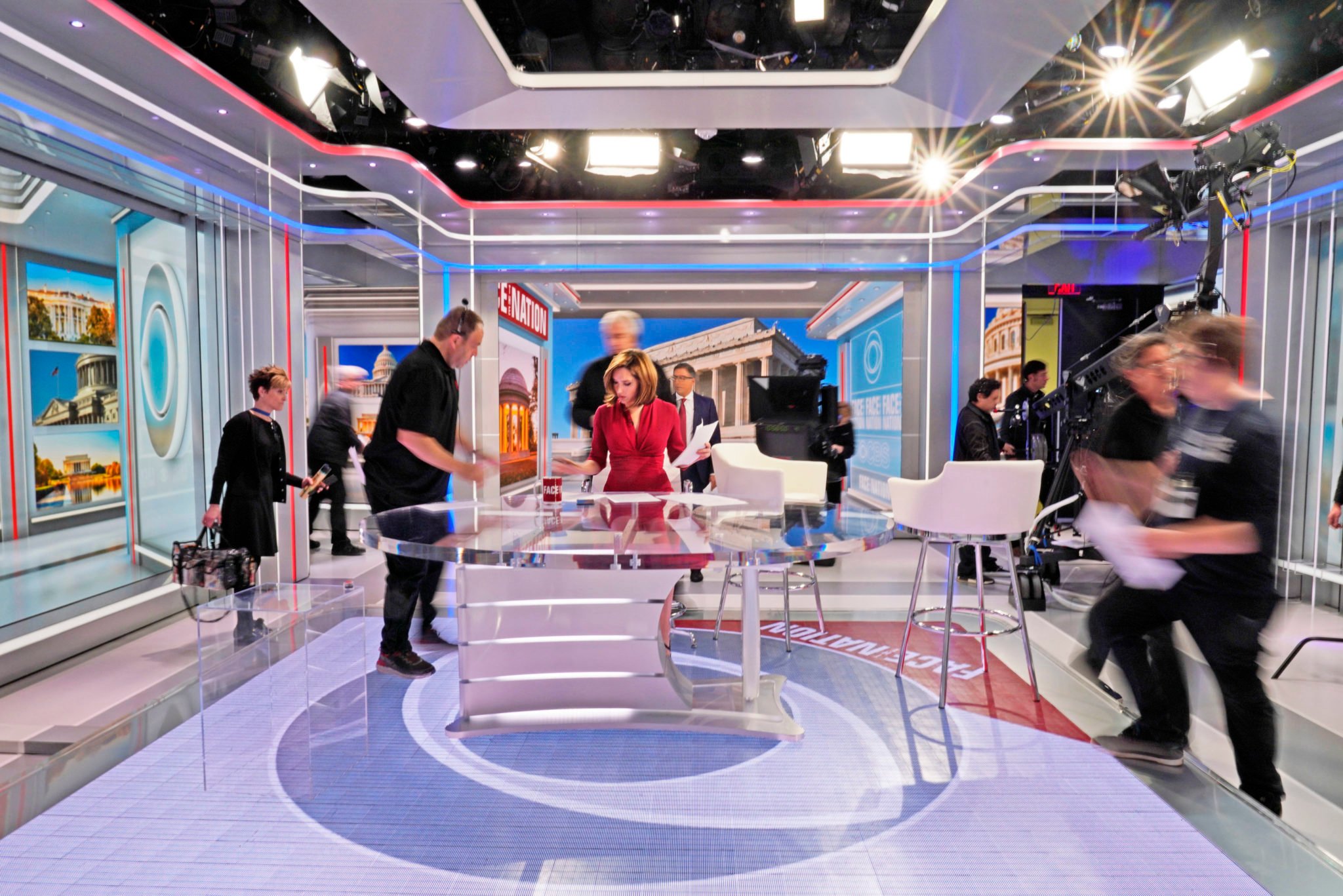In the days after President Joe Biden signed his $1.9-trillion Covid relief bill, the administration was the target of bellyaching from one of establishment Washington’s most hallowed institutions: the Sunday political shows. Though they’d invited Biden, White House chief of staff Ron Klain, and Vice President Kamala Harris onto the programs that aired the Sunday after the bill was enacted, only one top official—Treasury Secretary Janet Yellen—showed up. One senior producer complained to Politico’s Playbook that Team Biden was “leaving a vacuum on the Sunday shows.” And Playbook concluded that the episode might be “just another blow to the Sunday shows, a wounded D.C. institution.”
The Sunday talk shows—the “sabbath gasbags,” to critics—have long been a kind of secular religious service for a certain stratum of Washington, a venue to watch Very Serious People discuss Very Serious Issues. But it’s been quite some time since it was the only way for insiders to meet the media or face the country, as it were. Cable news offers interview slots 24-7, and social media gives political types unfiltered access to the public. Meanwhile, the Sunday shows have sometimes struggled to navigate the shifting values of news consumers—facing, for example, criticism for giving airtime to pols who spread lies about the 2020 election.
Looked at another way, the Sunday shows—the big five are NBC’s Meet the Press, CBS’s Face the Nation, ABC’s This Week, Fox News Sunday, and CNN’s State of the Union—have been damaged by their own success. Their format has been copied—in higher-octane, more conflict-driven forms—by programs across an expanding list of cable-news channels. The sabbath gasbags have become the weekday gasbags. At the same time, the shows have moved away from the venerable formula that made them successful, by running shorter interviews and spending more time chasing the news cycle. “The Sunday shows really became weekend cable shows,” says one former executive.
But here’s the thing: These programs still matter, both to viewers and to the companies that produce them, especially the legacy broadcast outfits that don’t run news content all day. While their command of insider Washington’s attention has eroded, the Sunday shows remain cornerstones of network news divisions: Because they’re relatively cheap to make, the programs have remained profitable. And as network entertainment divisions have lost viewers to streaming services over the last five years, the Sunday shows’ ratings have improved, albeit with help from the “Trump bump” news environment of recent years. “A lot of people didn’t get the memo that these are dinosaurs, and [they] still find them useful,” says Andrew Heyward, a former president of CBS News who is now a senior adviser at the MIT Center for Constructive Communication.
By early April, the Biden administration had reengaged with the Sunday programs. On April 4, for example, Transportation Secretary Pete Buttigieghit Meet the Press and This Week, National Economic Council director Brian Deese was on Fox News Sunday, and Energy Secretary Jennifer Granholm did CNN’s State of the Union. Of course, these shows aren’t just a vehicle for administration messaging; they’re TV programs. That means people have to enjoy watching them—plugged-in people, the kind who make policy as well as those who simply keep score. On that level, the shows still seem pretty healthy. And for many Washingtonians, they also remain a comforting ritual—one that, like actual Sunday church services, both requires and reinforces a type of faith. That these programs also (often) provide a space for (relatively) nuanced conversation is merely a bonus.


![Luke 008[2]-1 - Washingtonian](https://www.washingtonian.com/wp-content/uploads/2017/10/Luke-0082-1-e1509126354184.jpg)













